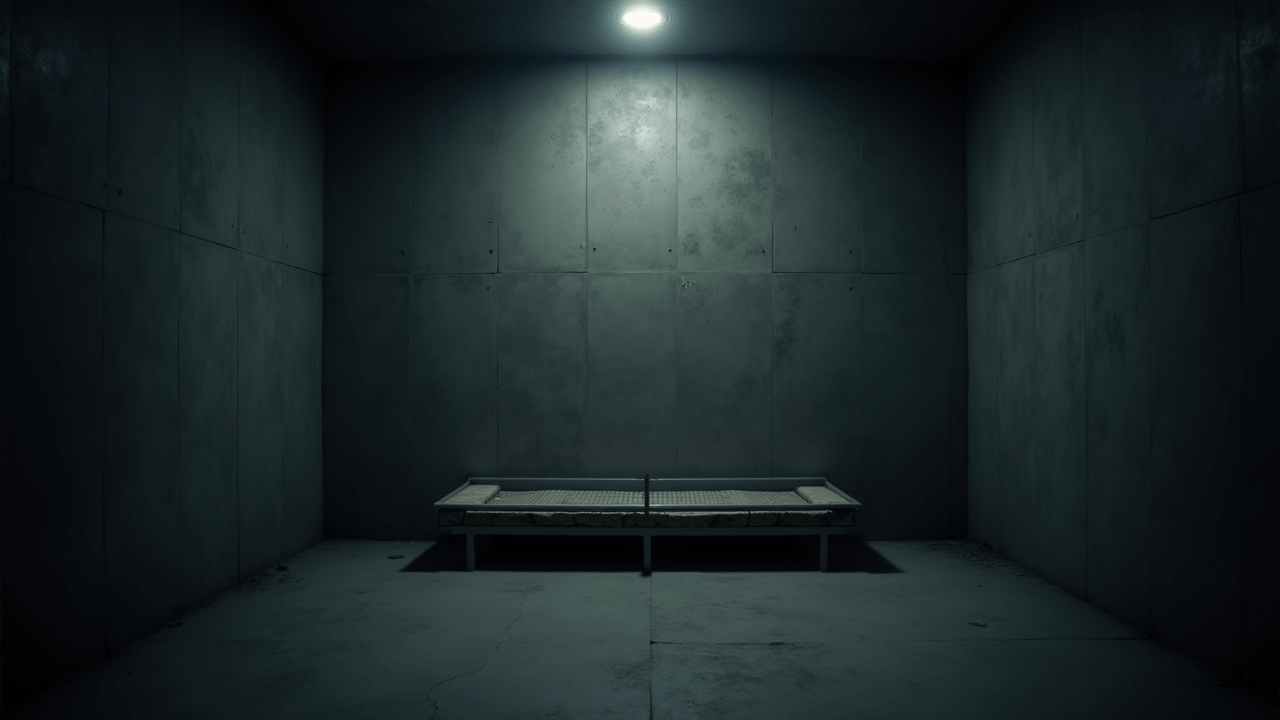Is Solitary Confinement Really As Bad As It Sounds?
Ever wonder if solitary confinement is really that bad, especially if you’re someone who enjoys being alone? It’s a question that pops up often, especially for those of us who recharge in solitude. It’s easy to imagine it as a kind of forced retreat, maybe even a bit of much-needed “me time.” But when you dive deeper into the experiences of those who have lived through solitary confinement, the reality is far more grim.
When we dug into firsthand accounts from former inmates and prison workers, we found that solitary confinement is anything but relaxing. The stories we heard were eye-opening and challenged those initial assumptions, showing us the vast difference between choosing solitude and having it brutally forced on you.
Choosing Solitude vs. Forced Isolation
One of the most striking realizations from these stories is how solitary confinement strips away the very thing that makes solitude enjoyable: choice. Being alone by choice can be peaceful, but when isolation is imposed without an end in sight, it turns into a form of psychological torture.
One commenter, Debray and Molnar, put it this way: “Imagine being locked in an empty bathroom for days, no phone, no books, no contact with the outside world.” Suddenly, it doesn’t sound so relaxing, right? Even for people who enjoy their alone time, being forced into that kind of isolation feels suffocating.
The Loss of Control
What makes solitary confinement so damaging is the complete loss of control. One former inmate, people289, shared how they tried to recreate the feeling of being alone but quickly realized the one thing they couldn’t replicate: the feeling of powerlessness. “You can’t control when or even if the isolation ends,” they said. That uncertainty is what chews at your mind, day in and day out.
The Psychological Toll of Sensory Deprivation
Solitary confinement isn’t just about being cut off from other people; it often includes extreme sensory deprivation. You’re in a cell with very little light, no sounds, no distinct smells, and your brain, which is used to processing information, starts to starve.
One commenter, boneCapone999, said it best: “The sensory deprivation kicks your body into a constant state of stress. Your fight or flight response is stuck on ‘on,’ but there’s no danger to fight or flee from.” This chronic stress can lead to hallucinations, paranoia, and distorted thinking.
Psychological Breakdown
Former inmates shared how quickly solitary confinement can mess with your mind. After just one week, Pike289 started talking to an imaginary friend. By week three, they were hearing answers. This is the kind of psychological toll that people mean when they say solitary confinement can drive you crazy.
Why Even Introverts Struggle
It’s tempting to think that people who naturally enjoy being alone might fare better in solitary, but that’s far from the truth. All humans need some level of sensory input and connection just to function. Even if you love staying in with a good book, you still engage with the world in small ways—whether it’s chatting with a barista or seeing people walk their dogs.
DaceMortis compared solitary to the isolation many of us experienced during COVID-19 lockdowns. Even though we had access to the internet, books, and movies, a lot of us still felt the psychological strain. Now imagine that same isolation, but without any of those comforts—no phone, no TV, no windows. The effects can be devastating.
The Bleak Physical Environment
Another aspect that makes solitary confinement so unbearable is the physical environment. It’s not a cozy cabin in the woods. According to Teton, a former prison worker, solitary cells are often cold, stark, and gray, with nothing but a bed and harsh lighting. It’s a far cry from the peaceful retreat some might imagine.
And it’s not just the isolation that’s harsh. SillyGoatGruff pointed out that personal belongings are usually not allowed, and even something as simple as a book can be taken away. In this environment, even the most introverted person would feel trapped and dehumanized.
The Lasting Impact of Solitary Confinement
Prolonged solitary confinement doesn’t just affect people while they’re in isolation—it leaves lasting psychological scars. Many inmates come out with severe mental health issues, and it can take years to recover, if they ever fully do. People289 mentioned how just having a window to look out of or choosing when to go to bed can make all the difference in maintaining sanity.
At the end of the day, solitary confinement raises huge questions about human rights, rehabilitation, and what justice really means. It’s clear that the way solitary confinement works in many places does more harm than good. The voices of those who’ve lived through it tell us that much.
FAQ Section
What is solitary confinement?
Solitary confinement is the practice of isolating an inmate in a small cell for 22 to 24 hours a day with minimal human contact.
Why is solitary confinement psychologically harmful?
Solitary confinement deprives individuals of sensory input and human connection, often leading to stress, paranoia, hallucinations, and long-term psychological damage.
Does solitary confinement affect introverts less?
No, even introverts suffer in solitary confinement due to the lack of sensory stimulation and control over their environment, which can lead to psychological distress.
What are the physical conditions like in solitary confinement?
Solitary confinement cells are often small, cold, and stark, with limited light and no access to personal belongings or entertainment.
Can solitary confinement cause lasting mental health issues?
Yes, many individuals experience long-term mental health problems after prolonged solitary confinement, including anxiety, depression, and post-traumatic stress disorder (PTSD).
Your Hosts

Alex & Maria
Join Alex Thompson and Maria Davis as they navigate the fascinating world of knowledge. With their combined expertise and passion for learning, they simplify the complex and make every episode a journey worth taking.

